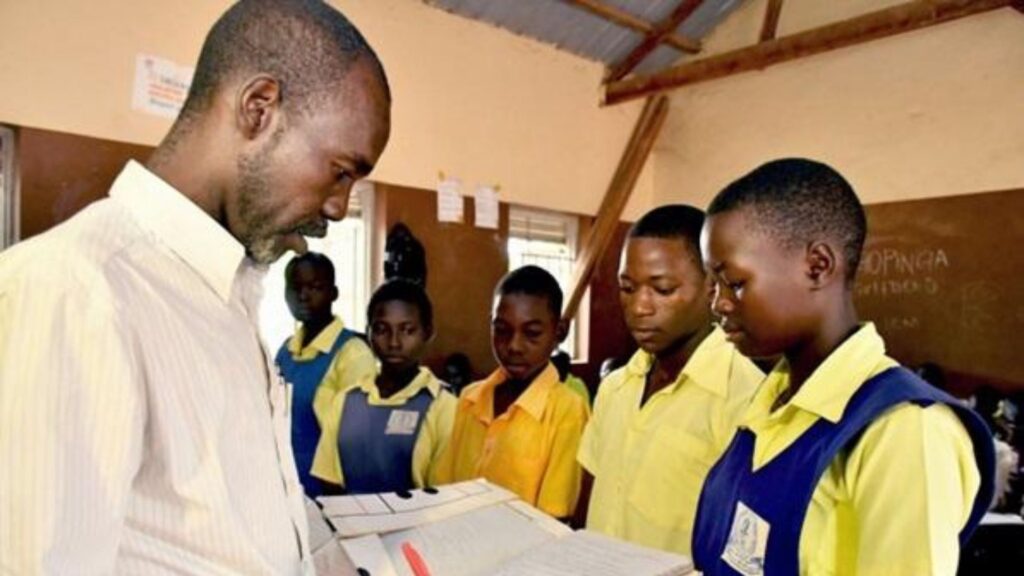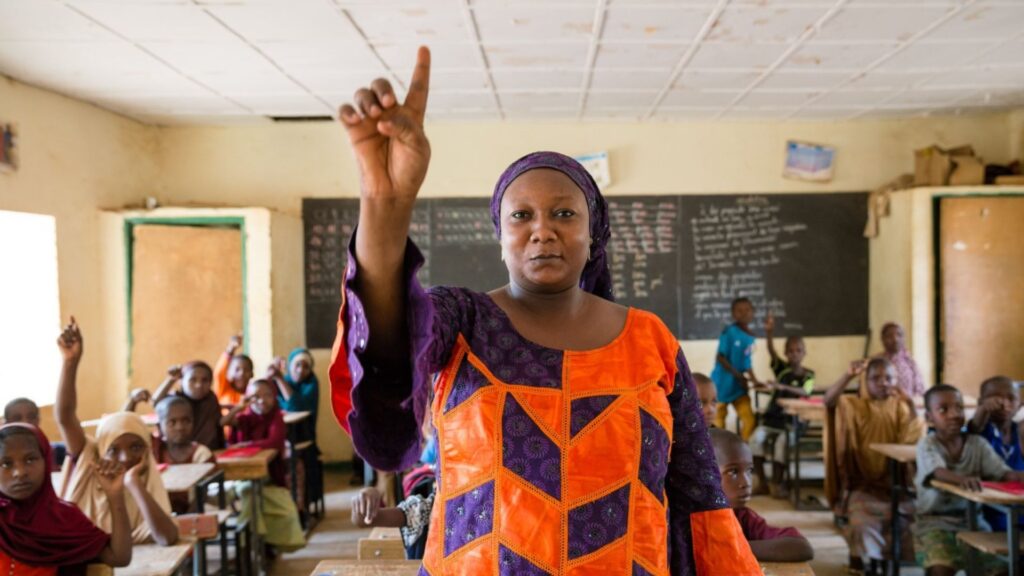West Africa faces a critical shortage of qualified teachers, threatening education and employment goals in one of the world’s fastest-growing regions. UNESCO data show that in some countries nearly one in three primary teachers lacks minimum qualifications.
The challenge goes beyond recruitment. Mass departures, driven by low salaries, poor working conditions and limited career prospects, weaken the education system. UNESCO argued that investing in teacher training is essential to improve the quality of learning on a sustainable basis.
In June 2025, UNESCO’s International Bureau of Education (IBE) launched a program with Mauritania, Benin and Côte d’Ivoire to modernize basic education. The plan aims to update curricula, train teachers and strengthen the first five years of learning. The initiative forms part of the Regional Teachers Initiative for Africa (RTIA), backed by the European Union, the African Union and UNESCO, which targets the shortage of qualified teachers as one of the main barriers to human capital development.

Persistent Shortage of Qualified Teachers
The urgency is underscored by UNESCO’s 2021/2022 Global Education Monitoring Report, which found that only 67% of primary teachers in Sub-Saharan Africa meet national standards. In some countries fewer than half of teachers reach the threshold.
Attrition worsens the crisis. In Sierra Leone and Benin, more than one in five teachers leaves the profession each year. A 2023 report from UNESCO’s International Institute for Capacity Building in Africa (IICBA) said many countries still lack clear professional standards and attractive career paths.
Towards a recovery in education in West Africa
Governments across the region are experimenting with reforms to address the shortage. In Ghana, teacher training colleges now grant a Bachelor of Education aligned with the new national curriculum. The program, supported by the UK and the Ghanaian government through the Transforming Teacher Education and Learning (T-TEL) initiative, aims to improve teacher preparation and institutional capacity.
Nigeria raised salaries for primary and secondary teachers to stem attrition. President Bola Tinubu signed a decree in May 2024 setting a new minimum wage of 70,000 naira ($47), although implementation remains uneven across states.
In Gambia, the 2016–2030 education sector strategy emphasizes professional recognition and mobility. Authorities said the plan seeks to develop professional standards and skills for teachers and principals, promote continuous training, and foster a culture of professionalism in schools.
These examples show that retaining teachers requires a mix of competitive salaries, better working conditions and continuous training. Regional initiatives like RTIA, which combine training, policy reform and improved conditions, point to an integrated approach.
Observers warned that without large-scale investment in teacher training and retention, West Africa risks turning its demographic growth into a burden instead of a driver of development.



